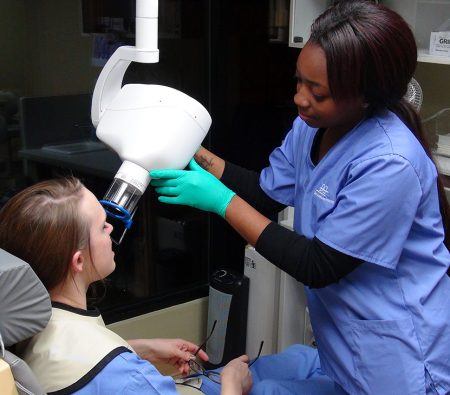
How to Handle Dental Emergencies as an Assistant
Author: Dr. Casey Hart
Dental assistants play a vital role in keeping a dental practice running smoothly—not just during routine visits, but especially when emergencies arise. From sudden toothaches to broken restorations, patients often arrive in distress and rely on the dental team for quick relief. Knowing how to respond calmly and effectively can make all the difference.
In this article, we’ll cover the most common dental emergencies, the steps every dental assistant should take, and why preparation is key to patient safety and trust.
Why Dental Emergencies Matter in Your Career
Emergencies can happen at any time, and patients often remember how the dental team handled their urgent situation more than their regular checkups. As a dental assistant, you are often the first point of contact, whether that’s over the phone or when a patient walks in.
Being confident in emergency protocols helps you:
-
Support the dentist with speed and accuracy
-
Provide reassurance to anxious patients
-
Showcase professionalism that builds patient trust
-
Strengthen your value to the dental practice
Common Dental Emergencies You’ll Encounter
While every day in dentistry is different, these are the emergencies dental assistants most often see:
-
Severe toothache or infection – often caused by decay or abscess
-
Knocked-out (avulsed) tooth – time-sensitive and requires immediate action
-
Broken or chipped tooth – especially if it exposes the nerve
-
Lost crown or filling – can cause pain or sensitivity
-
Soft tissue injuries – cuts to the tongue, cheek, or gums
-
Swelling or allergic reactions – may require urgent attention
Knowing these scenarios helps you anticipate what instruments and materials the dentist will need.
Step-by-Step Response for Dental Assistants
Here’s how to manage emergencies effectively as a dental assistant:
1. Stay Calm and Assess the Situation
Your demeanor sets the tone. Greet the patient, ask what happened, and note their level of pain or swelling. Stay composed even if the patient is panicked.
2. Gather Key Information
-
When did the emergency occur?
-
What symptoms are they experiencing?
-
Are they taking any medications or have medical conditions that may complicate treatment?
This information helps the dentist make quick clinical decisions.
3. Prepare the Operatory
Before the dentist enters:
-
Set up the correct tray (restorative, extraction, endo, or surgical)
-
Ensure suction, anesthetics, and emergency equipment (oxygen, AED) are ready if needed
-
Lay out PPE and confirm sterilized instruments are within reach
4. Assist During Treatment
Your efficiency matters most here:
-
Anticipate the dentist’s needs by handing instruments promptly
-
Monitor the patient’s comfort and provide reassurance
-
Manage suction and keep the field clear for visibility
5. Provide Post-Operative Instructions
Patients need clear guidance to prevent further issues. Reinforce the dentist’s instructions and make sure patients understand follow-up steps, prescriptions, or when to return for additional care.
Tips for Excelling in Emergency Situations
-
Stay Organized – Keep emergency kits stocked and labeled
-
Know the Protocols – Review your office’s specific emergency manual regularly
-
Communicate Clearly – Speak calmly with patients and confirm understanding with the dentist
-
Continue Learning – Ongoing training in CPR, first aid, and dental emergency procedures will set you apart as a top assistant
Why Training Makes a Difference
At Dental Careers Institute, we prepare students not only for the everyday duties of dental assisting but also for critical moments like emergencies. By learning hands-on techniques and real-world protocols, you’ll graduate ready to support your dentist and patients when it matters most.
Final Thoughts
Handling dental emergencies as an assistant requires calmness, preparation, and quick thinking. Patients depend on your support, and your ability to respond effectively makes you an indispensable part of the dental team.
If you’re ready to begin a rewarding career in dental assisting and want the skills to thrive in both routine and urgent situations, enroll in our Dental Assisting Program today
